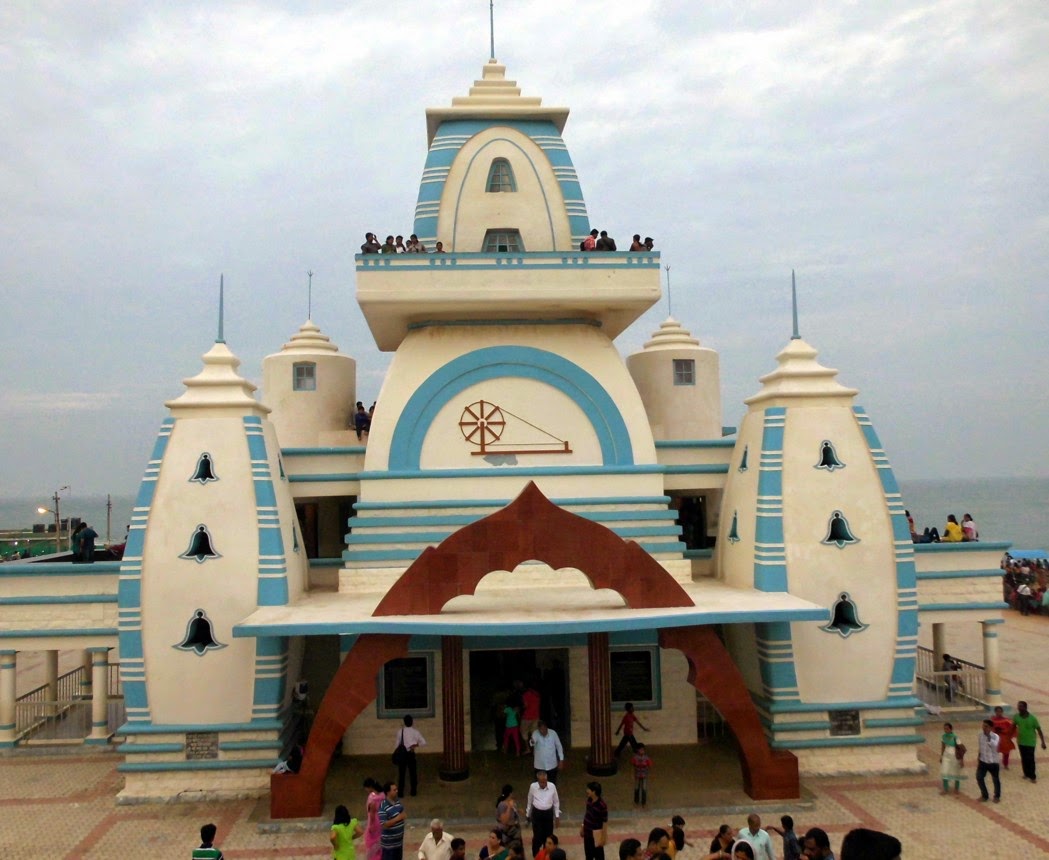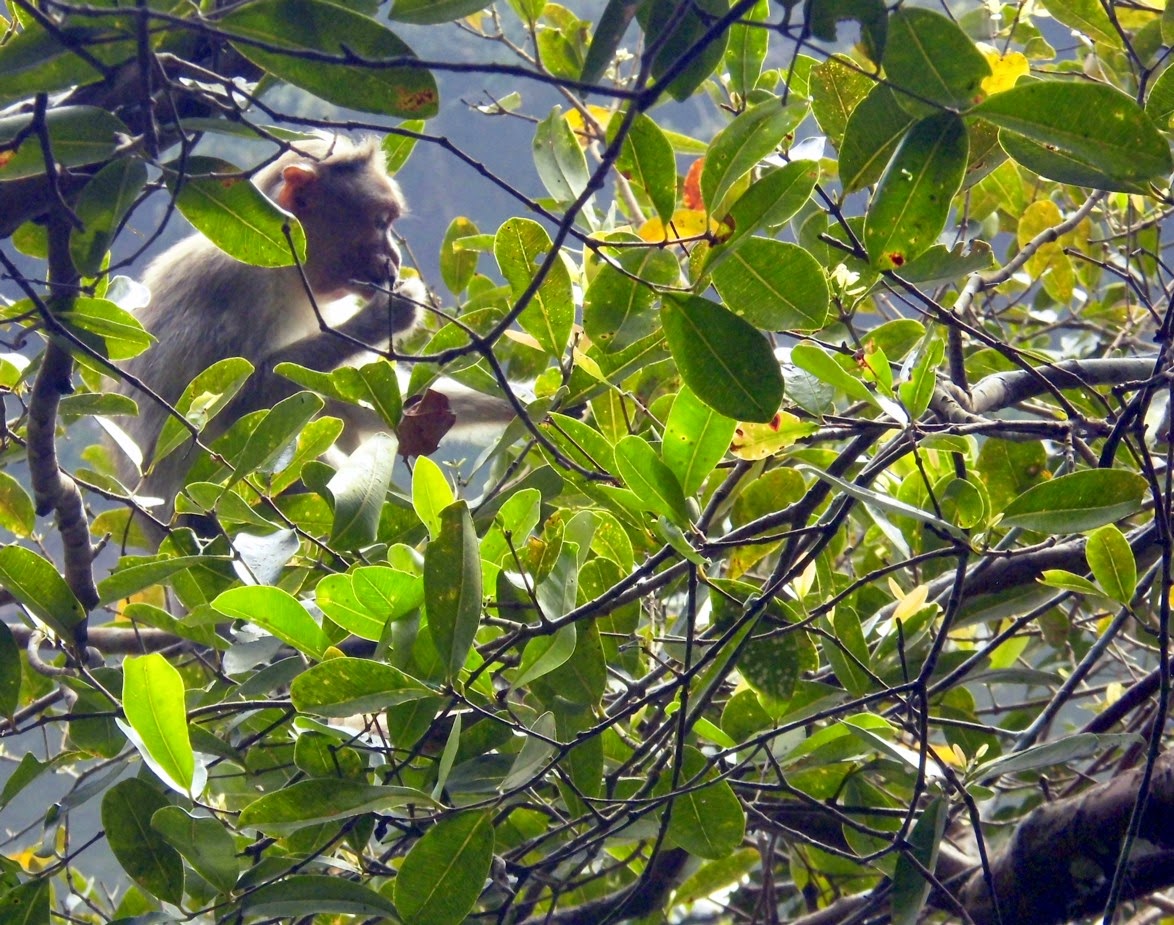I'm looking at my Comprehensive Times Atlas of the World, and it almost works. They've marked the Arabian Sea, the Indian Ocean, and the Bay of Bengal. But do they really come together at Kanyakumari (Cape Comorin), the southernmost point of mainland India? The tourist slogan says they do, and it's rumoured they even sell presentation boxes with sand of three colours, from the relevant three beaches, though we didn't see any of these.
The trouble is, when you look at a larger scale map, like my 1:2,500,000 Marco Polo 'India', you see that the only sea that's right there actually goes by the name of the Lakshadweep Sea.

 Whatever the detail around that, Kanyakumari is a spectacular place. That applies especially for the peak holiday and Pilgrimage season between Christmas and New Year, when we were there. What a massive crowd! Most of them wanted to see the sunset and the sunrise, visit the ghats and the big Hindu temple, and take the ferry out to the offshore structures that commemorate the Tamil poet Thiruvalluvar and the Hindu apostle Swami Vivekananda. There's also a Gandhi memorial building, where some of his ashes are stored.
Whatever the detail around that, Kanyakumari is a spectacular place. That applies especially for the peak holiday and Pilgrimage season between Christmas and New Year, when we were there. What a massive crowd! Most of them wanted to see the sunset and the sunrise, visit the ghats and the big Hindu temple, and take the ferry out to the offshore structures that commemorate the Tamil poet Thiruvalluvar and the Hindu apostle Swami Vivekananda. There's also a Gandhi memorial building, where some of his ashes are stored.
Mostly we just wandered around, enjoying the colour and the crowds.
The trouble is, when you look at a larger scale map, like my 1:2,500,000 Marco Polo 'India', you see that the only sea that's right there actually goes by the name of the Lakshadweep Sea.

 Whatever the detail around that, Kanyakumari is a spectacular place. That applies especially for the peak holiday and Pilgrimage season between Christmas and New Year, when we were there. What a massive crowd! Most of them wanted to see the sunset and the sunrise, visit the ghats and the big Hindu temple, and take the ferry out to the offshore structures that commemorate the Tamil poet Thiruvalluvar and the Hindu apostle Swami Vivekananda. There's also a Gandhi memorial building, where some of his ashes are stored.
Whatever the detail around that, Kanyakumari is a spectacular place. That applies especially for the peak holiday and Pilgrimage season between Christmas and New Year, when we were there. What a massive crowd! Most of them wanted to see the sunset and the sunrise, visit the ghats and the big Hindu temple, and take the ferry out to the offshore structures that commemorate the Tamil poet Thiruvalluvar and the Hindu apostle Swami Vivekananda. There's also a Gandhi memorial building, where some of his ashes are stored.Mostly we just wandered around, enjoying the colour and the crowds.















































